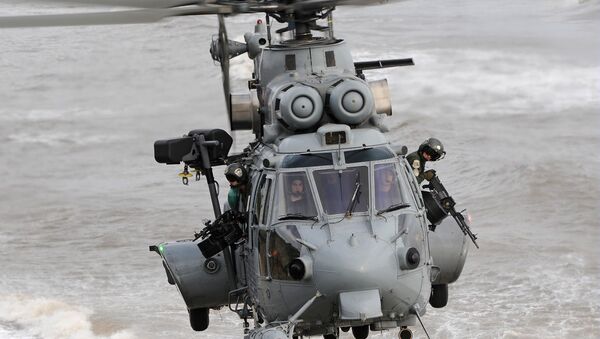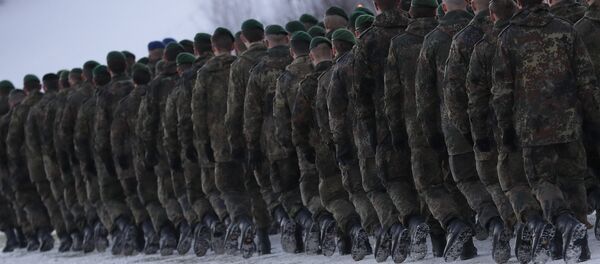Speaking to local media, Airbus' military division head Fernando Alonso said financing for the new fighter had been provided from the governments of Germany and Spain, and he hoped France would also participate.
Airbus announces "Future Combat Air System" for Europehttps://t.co/XwLTC22XYd pic.twitter.com/TBkXEfmu2u
— Mark (@markito0171) June 12, 2017
"We have to work together in Europe, there is no more space for two or three different systems. The time is ripe for making and implementing a decision [on common defense]," he added.
The Airbus project, the Future Combat Air System, will replace the Eurofighter and Tornado jet models in Germany, as well as Spain's F16 fleet. If France was to join, the FCAS might also replace the Rafale, scheduled to become obsolete in 2030. In 2016, French officials suggested the Rafale might be replaced by American F35 fighters, although the election of eurosceptic Donald Trump has thrown the plans into question.
Moreover, a purchase from the US would also run contrary to the EU's stated aim of achieving technological and strategic "sovereignty" as part of its defense plans, which will see €1.5 billion (US$1.7 billion) spent annually on EU-wide military research and development, and joint procurement fund designed to facilitate projects such as the FCAS.
First glimpse of European 6th gen fighter concept? @AirbusDS concept for a FCAS (Future Combat Air System) #avgeek pic.twitter.com/C76FnrJJxz
— Tim Robinson (@RAeSTimR) June 20, 2016
The development of the FCAS also comes as the UK, roughly tied with France as the EU's main military power, prepares to start secession negotiations. Brexit evidently looms large in Airbus' considerations — the company currently employs 10,000 at two manufacturing plants in the UK, although Chief Operating Officer Fabrice Bregier has made clear unless the UK negotiates an "amicable" deal with the EU (allowing staff to freely move between the UK and the continent, and the firm to import and export wares without punitive tariffs) it will move the plants elsewhere.
While talks were originally scheduled to commence June 19, question marks hang over Prime Minister Theresa May's ability to form a government, potentially delaying negotiations. Nonetheless, the UK government remains officially committed to securing the country's withdrawal — and EU chiefs are evidently more committed than ever to creating a unified European army.
There are suggestions Germany has already been quietly and informally building such a configuration, with divisions of Romanian, Czech and Dutch troops effectively subject to German command, and the militaries of Romania and the Czech Repubic due to likewise integrate one brigade each into the Bundeswehr. Such a prospect was originally mooted in November 2016, when the bloc agreed on a combined security and defense plan — although the plan excluded the prospect of creating an EU army, it promoted integration.



